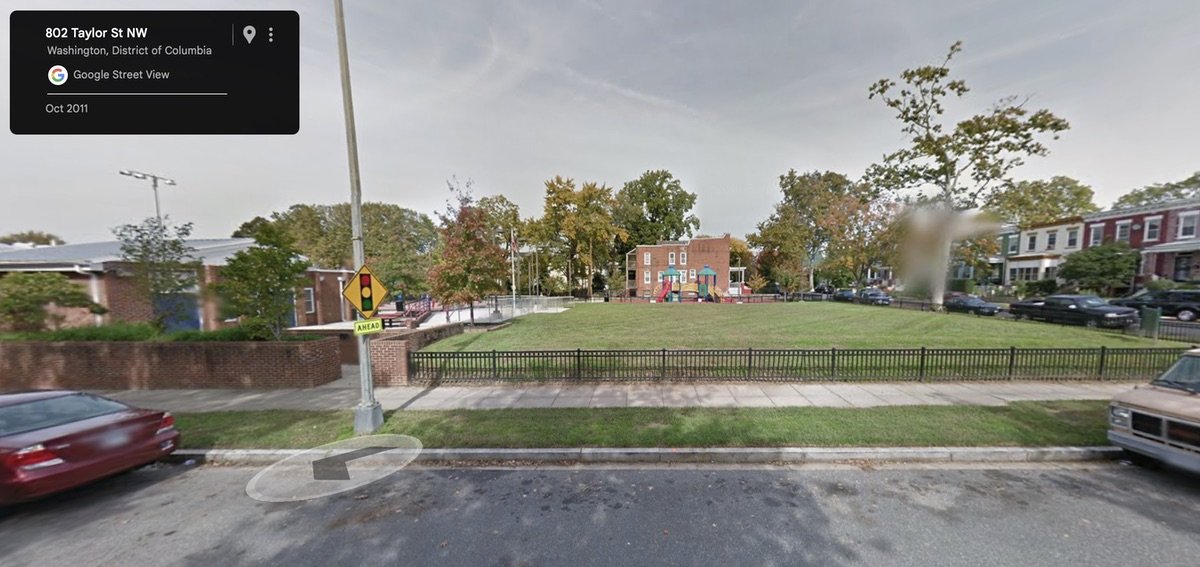Ward 4 public safety meeting notes
/Ward 4 Councilmember Brandon Todd held a meeting at the Fourth District Headquarters last Thursday night, July 23rd. The meeting was an opportunity for residents to get a quick update on crime in the Fourth District and asks questions of Chief Lanier and 4D Commander Manlapaz.
Brandon opened the meeting by thanking everyone and mentioned that he was now 60 days into his term as councilmember. He called the Public Safety Meeting to make sure residents were able to share their concerns and to discuss the recent uptick in break-ins and robberies in the area. (Note that the other officers in attendance were not introduced; I think there were some from Park Police.)
Ward 4 Councilmember Brandon Todd
Brandon talked about his recent ride-along with Commander Manlapaz across the Fourth District, and how he and the Commander speak daily to keep him updated on crime issues around the ward. Beyond the weekly neighborhood walk-throughs he and the Commander have been doing, Brandon said they are getting ready to launch the new Block Captain program.
Commander Manlapaz then spoke a bit about recent crime stats, saying District-wide, robberies and theft from auto were both up (24% and 18% respectively). Those numbers were down 30% in the Fourth District, specifically in the southern area of 4D. (Note that basically, a robbery is when something is taken from a person, while a theft is something taken when the owner is not present.)
Brandon Todd and 4D Commander Wilfredo Manlapaz
Theft from auto remains one of the top crimes in the Fourth District. It’s hard to stop as it’s a crime of opportunity — residents need to be vigilant.
“People need to remember to lock their car doors and to not leave book bags, computers or other valuables in their cars,” Commander Manlapaz said. “Even if a backpack is empty, the criminal doesn’t know that and will still break in to steal it.”
Chief Lanier arrived a few minutes late, and said, while looking out at the crowd, “It’s nice to see so many people here, but a packed house is not a good sign, you know?”
The Chief then went on to explain the ways she stays in tune with crime in the District. “I’m on a 2-hour conference call with detectives 3 days a week, and a 2 hour call with special operations units.”
Lanier talked about the 18% decrease in cell phone robberies. “We worked with the FCC and telecom industry to prevent the resale of stolen phones,” she said. “But you know what they do, right? The criminals find other ways to adjust. We were successful in closing down the open air drug markets, and they’ve moved on to street robberies, theft from auto and such.”
She discussed how MPD watches patterns to determine where crime is occurring, and look for repeat offenders. “I have a bunch of analysts, who all they do is look at crime numbers from around the city,” Lanier said. “We know the pattern of one guy, and we see that pattern appear and we can check and see, yup, so-and-so was released from prison last week.”
DC Police Chief Kathy Lanier and Ward 4 Councilmember Brandon Todd
“When we make an arrest for theft from auto, you know it’s not his first theft that day,” Lanier said, referring to repeat offenders. “He probably broke into 17 cars that day, 100 that week… when we arrest him, we see a big drop in numbers.”
Theft from distracted people continues to be a problem. “I know how it is, you’re walking down the street looking at your phone, and the next moment some guy snatches it out of your hands.”
Chief Lanier then went on to talk about synthetic cannabinoids. “It’s a big issue now,” she said. “Here, Florida, Ohio, Atlanta, all around the country.” She said she had a call last week with other police chiefs to talk about K2 and synthetic drugs.
“These drugs are disproportionally distributed among the poor and homeless,” Lanier said. “And you know we have a problem with homeless in DC. Not everyone homeless is using drugs, but that is the demographic,” she said.
A bag of synthetic cannabinoids I found on the street in Petworth.
The synthetic cannabinoids, like K2, Bizarro, Scooby Snack and others are cheap ($4-5 dollars a bag or $1 pre-rolled). The drugs have extremely bad side affects, and have led to a dramatic increase in ambulance calls and violence. Due to recent legislation in DC, MPD now has more power to deal with businesses that are selling these synthetic drugs.
“If you know of a business that is selling these drugs, tell MPD,” the Chief told the audience. “We can go into the store and if need be, shut the business down for 96 hours. We give them two chances,” she said, adding that repeat offenders can be shut down permanently.
Chief Lanier also said that in June, there were 429 ambulance runs for people overdosed on synthetic drugs. One issue is that paroled offenders who are tested for various drugs are not tested for the synthetic cannabinoids. This makes the synthetics not only cheaper, but a drug of choice for people who have to undergo drug testing on a regular basis.
Then the audience asked questions of the Chief, of which I’ll share the highlights.
The issue of paying for more street cameras came up (one person wanted a camera installed in an alley), as well as the new camera at 8th and Jefferson St NW. “Everyone wants cameras,” said Chief Lanier. “CCTVs are expensive but they're effective.” She said they look to shift the movable cameras around as needed (about once a year), but they can’t put them everywhere. Lanier discussed how homeowners can help with prevention. “If you have cameras that look out into public space, like an alley, let us know. We’ll put you on a registry of people we can go to, if you agree.”
Commander Manlapaz received several compliments from the audience for his responsiveness, community outreach and efforts to keep people informed.
People asked about crime and drugs along Kennedy Street and said they felt not enough was being done. Commander Manlapaz spoke about the extra officers that have been assigned to the area, including bike officers and an increase in the officers on the “power shift” time of 6pm to 4am. “We’ve made arrests, but our biggest challenge is that victims don’t always cooperate, and witnesses don’t want to talk.” MPD is pushing their anonymous tip and text lines.
Chief Lanier also talked about the ways they’re trying to assist youth and give them options before an arrest becomes necessary. “Education is critical” is the key phrase you will hear from both Chief Lanier and Commander Manlapaz. There are programs to help 18-24 year olds get their GED and get jobs. Lanier said they follow three steps: 1) Officer presence in the neighborhood to dissuade criminal behavior where possible, 2) offer education and job training, and 3) use street-level narcotic units to arrest offenders.
A resident asked how the legalization of marijuana has either helped or hurt drug issues in DC. Lanier said she hasn’t seen issues in either direction. The biggest issue with the legalization seems to be confusion about where it’s legal to now smoke pot. “You get younger people standing on the corner smoking pot, and they say ‘But we thought it’s legal to smoke now!’ And we say yeah, at home!” said Lanier. (It’s legal to smoke in your home and your back porch, not on your front porch or on public property.)
Another resident asked about adding more crime cameras. Chief Lanier said that the cameras are extremely expensive, so while the department uses the cameras, and moves the mobile cameras to new locations as needed, MPD also relies upon residents who have cameras. The Chief encouraged people to purchase cameras for home security, if they can afford it. She told a story about buying a home security system with multiple cameras for her mother’s house. She said MPD has a database for people to register cameras that look out on public areas. (Note, I heard from an ANC commissioner in Ward 1 that ANCs are able to provide grants for personal cameras… check with your commissioner.)
Another resident asked for an update on police staffing. Chief Lanier said that right now MPD has the lowest number of uniformed officers on street in long time. 61%+ of command staff are eligible to retire now, with 80 of officers retiring between now and October. Chief has been asking to “over hire” for years but wasn’t given budget to do so. At this point, MPD can’t hire quick enough to meet attrition rates. One of the ways she is looking to stem the loss is to hire civilians to replace officers in administrative positions, freeing up officers to go back to street patrol.
Chief Lanier than talked about the need for residents to know their patrol officers and PSA lieutenants. Lanier said commanders have to make tough decisions. “It would be nice to have officers get out of their cars and talk to people, but summer crime means cars need to be constantly moving between incidents.” Lanier went on to say that she wished officers would introduce themselves more, and encourages residents to greet and introduce themselves to officers. “We’re working with the academy to train new officers to be more outgoing…”
The last point was about dirt bikes and ATVs. MPD won’t chase them as it’s too risky for collateral damage. “We’ve recovered 90 this year without pursuit,” she said. “The Council needs to address this issue.” She mentioned there is a new program to anonymously report who is storing or driving the dirt bikes illegally called “Phone Us for Bonus.” MPD is offering $250 rewards for information leading to a seizure.
Brandon Todd then asked how people heard about the meeting. Flyers were sent to 3,400 homes in the area, along with robo-calls, emails, listserv notices and Brandon’s Twitter and Facebook page. Interestingly, most residents heard about the meeting from flyers and robocalls.
That’s it… it was good information, and I encourage you to attend meetings when you can. Thanks to Jonah Goodman and Carrie Cohen for contributing their notes. Cheers!
I laughed at this sign: Why is there a "No Loitering" sign in the Fourth District Police Headquarters meeting room. Is this a problem at the station?




















